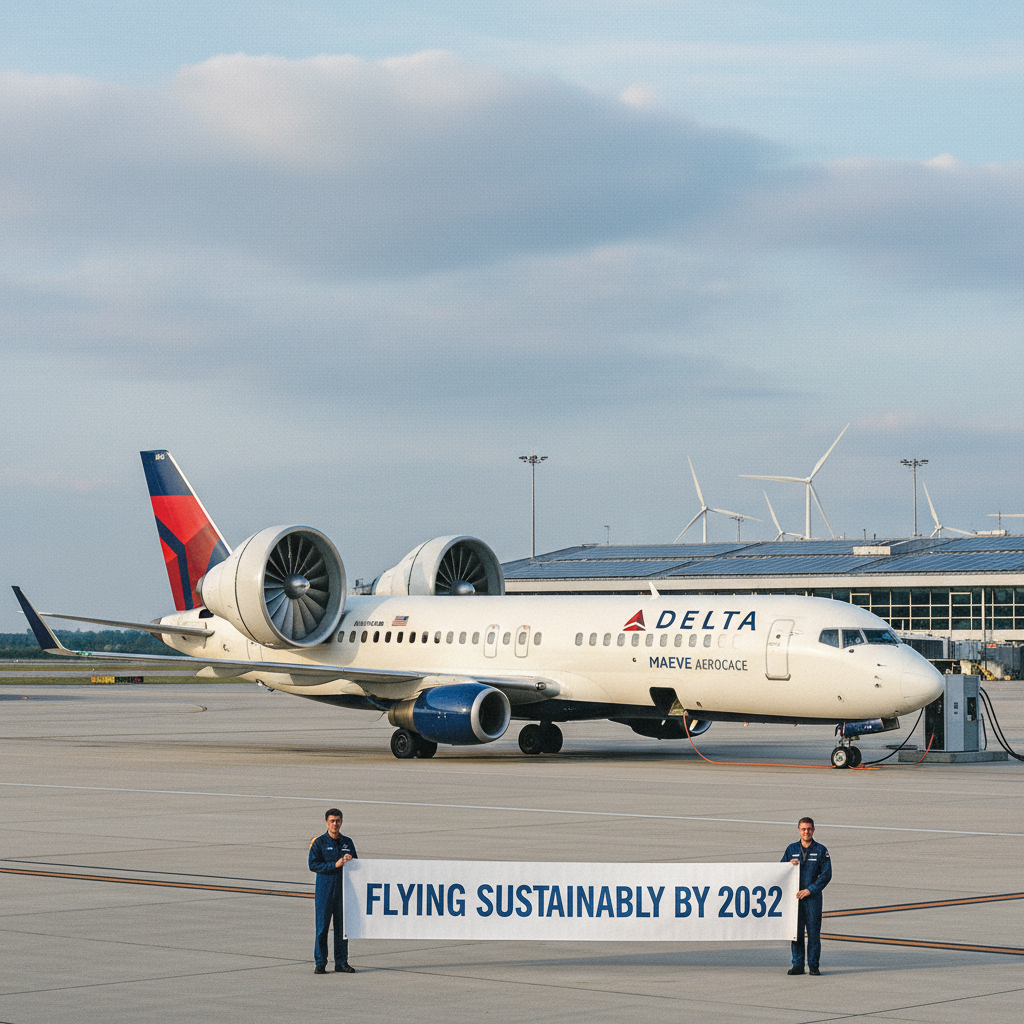Physical Address
304 North Cardinal St.
Dorchester Center, MA 02124
Physical Address
304 North Cardinal St.
Dorchester Center, MA 02124
Global aviation news tracker
Global aviation news tracker

Delta announced a partnership with Dutch startup Maeve Aerospace on September 21, 2025 to co-develop a hybrid-electric jet aimed at regional routes and commercial service by 2032.
The deal pairs Delta Airlines’ operational experience with Maeve Aerospace’s electric propulsion and battery expertise. Delta will provide market access and route planning know-how while Maeve focuses on the aircraft’s advanced battery systems and hybrid propulsion architecture. The collaboration targets reduced emissions and lower operating costs on short-haul services across the US and Europe.
Maeve, a Netherlands-based startup, describes the programme as a step toward cleaner, more efficient regional air travel. Delta’s involvement is intended to help accelerate certification and airline-level testing, giving the project a clearer path from prototype to revenue service.
Regional flights are a prime candidate for hybrid-electric technology because they often operate shorter sectors and frequent cycles, where battery and hybrid systems can deliver meaningful fuel savings. The partners say the aircraft will combine conventional turbine engines with electric motors and high-density battery packs to extend range and cut carbon output compared with today’s regional turboprops and jets.
The move reflects growing industry momentum toward sustainable aviation solutions, including sustainable aviation fuel (SAF) and electrification. While the partners are aiming for entry into service by 2032, several technical and regulatory milestones remain—certification, battery safety approvals, and proof of economics on real airline schedules.
For passengers and route planners, the result could be quieter, cleaner regional flying with lower per-seat costs on short-sector networks. Delta’s backing also signals that legacy carriers see hybrid-electric aircraft as a realistic part of their mid-term decarbonization strategies.